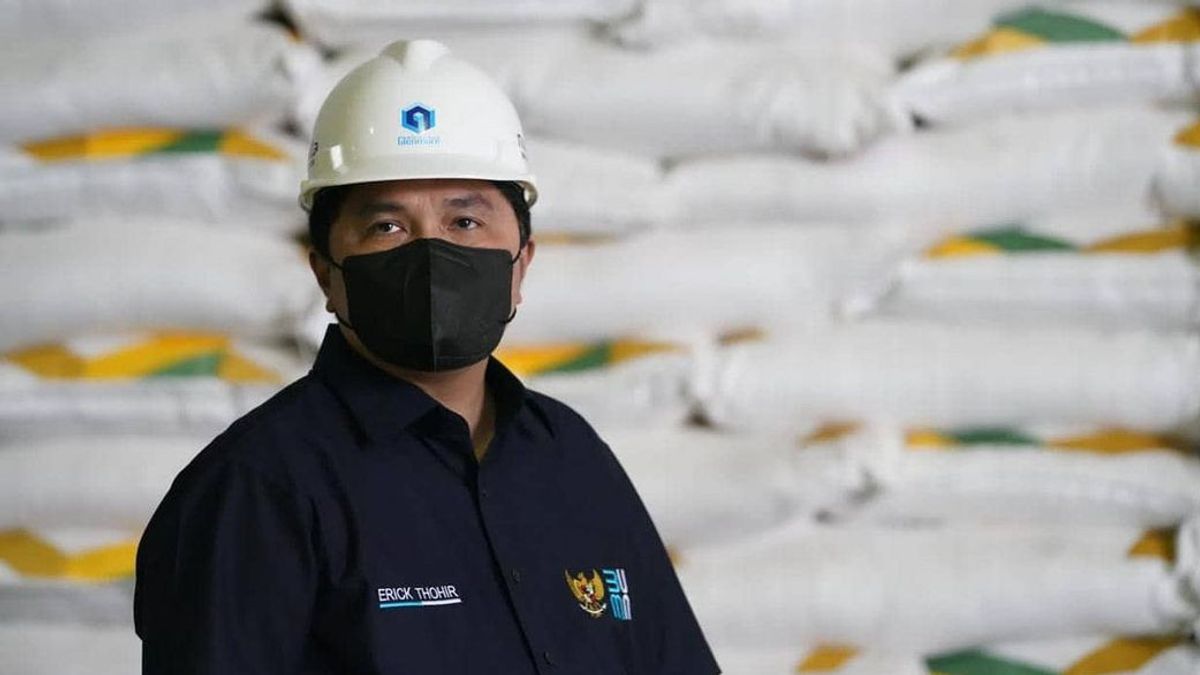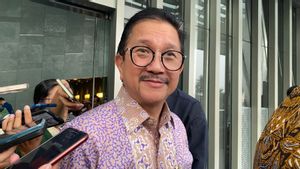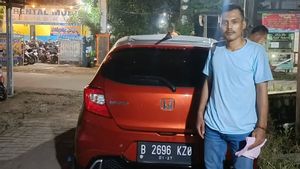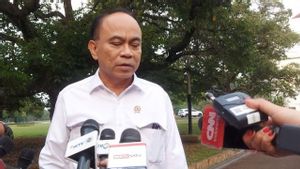JAKARTA - SOE Minister Erick Thohir inaugurated the Bioneensis biofertilizer factory in Banyuwangi, East Java, as a result of a collaboration between PT Industri Sugar Glenmore and PT Research Perkebunan Nusantara, which is a subsidiary of PTPN III (Persero) plantation holding company.
Through a live online broadcast, Erick expressed hope that the steps taken by PTPN III could help support the national sugar self-sufficiency target by 2025.
"We have seen that the existence of this PTPN should be a benefit for farmers. Now we see, we want this PTPN to be able to maintain the national sugar balance," he said, quoted from Antara, Saturday, September 18.
Erick said that PTPN's sugar production has now increased to around 800 thousand tons. This amount is still not enough to meet national needs, so the government is still opening the import tap.
"But for 2024-2025, in accordance with the direction of President Joko Widodo, we hope that we can start managing rice and sugar self-sufficiency," he said.
Erick said that in the 1930s, Indonesia became one of the world's sugar producing countries. However, that achievement continued to decline until post-independence.
"In 2025, we will begin to be self-sufficient again. We are trying, we are working optimally. However, I hope that PTPN's performance, especially since the restructuring finished yesterday, can now be seen," he said.
PTPN III President Director Mohammad Abdul Ghani said his party would be part of the effort to support the sugar self-sufficiency target.
"By 2024, our target is 1.8 million tons of sugar production," he said.
During his visit, Erick took the time to visit sugarcane plantations, provide seeds and fertilizers to sugarcane farmers, and visit the Glenmore sugar factory.
Bioneensis fertilizer is a biological fertilizer formulated for all crop commodities.
Bioneensis contains a consortium of beneficial microbes isolated from oil palm roots and has high adaptability and association in various commodities such as plantation crops, food crops, vegetables, and horticulture including oil palm, sugar cane, corn, rice, vegetables, chili, citrus, ornamental plants, papaya, and shallots.

This product contains nitrogen-fixing bacteria, phosphate solubilizing bacteria, and indole acetic acid (IAA) producing bacteria which act as plant growth promoting rhizobacteria (PGPR).
Especially for the Bionensis factory in Banyuwangi, sugarcane waste will be used as raw material for fertilizer which is then re-used for sugarcane plantations.
The English, Chinese, Japanese, Arabic, and French versions are automatically generated by the AI. So there may still be inaccuracies in translating, please always see Indonesian as our main language. (system supported by DigitalSiber.id)













